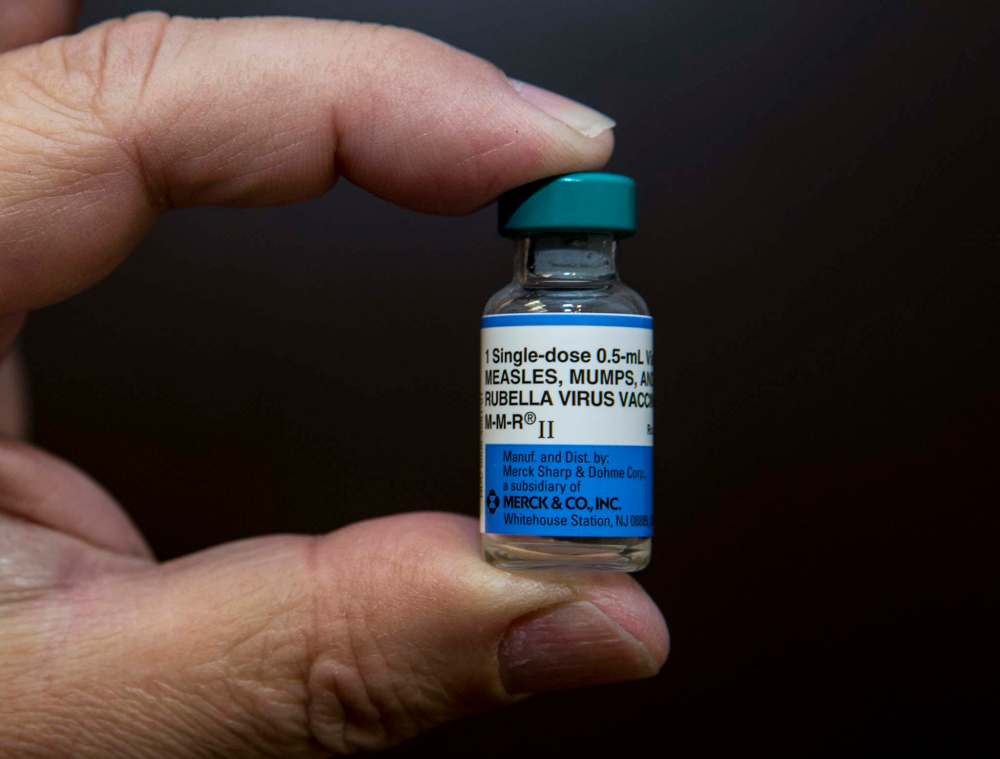School’s return may make mumps outbreak worse
Health official's message to Manitobans: 'Vaccinate, vaccinate, vaccinate'
Advertisement
Read this article for free:
or
Already have an account? Log in here »
To continue reading, please subscribe:
Monthly Digital Subscription
$1 per week for 24 weeks*
- Enjoy unlimited reading on winnipegfreepress.com
- Read the E-Edition, our digital replica newspaper
- Access News Break, our award-winning app
- Play interactive puzzles
*Billed as $4.00 plus GST every four weeks. After 24 weeks, price increases to the regular rate of $19.95 plus GST every four weeks. Offer available to new and qualified returning subscribers only. Cancel any time.
Monthly Digital Subscription
$4.99/week*
- Enjoy unlimited reading on winnipegfreepress.com
- Read the E-Edition, our digital replica newspaper
- Access News Break, our award-winning app
- Play interactive puzzles
*Billed as $19.95 plus GST every four weeks. Cancel any time.
To continue reading, please subscribe:
Add Free Press access to your Brandon Sun subscription for only an additional
$1 for the first 4 weeks*
*Your next subscription payment will increase by $1.00 and you will be charged $16.99 plus GST for four weeks. After four weeks, your payment will increase to $23.99 plus GST every four weeks.
Read unlimited articles for free today:
or
Already have an account? Log in here »
Hey there, time traveller!
This article was published 09/09/2017 (3058 days ago), so information in it may no longer be current.
Cases of the mumps have skyrocketed in Manitoba over the last year — more than 850 confirmed since Sept. 1, 2016 — and medical health officials are worried the return of school season could trigger a new spread of the infectious disease.cgu
From January to June, the number of confirmed cases in the province was 616 — compared to 2014, when zero cases of mumps were reported.
Dr. Richard Rusk, a provincial medical health officer, noted confirmed cases of mumps in the Winnipeg Regional Health Authority (WRHA) had dropped to eight in May and five in June (the latest provincial statistics).

“My biggest concern is we’re going back to school,” Rusk said. “So we’re congregating a lot of young kids again. University students. And then going into the winter, where people tend to be inside a lot more.
“Admittedly, there’s been very few cases in Winnipeg over the last two months. But the virus is not gone,” he added. “I would hate for this to flare back up when things have actually started to improve (in the WRHA).”
Rusk said the normal number of cases per year in Manitoba ranges from four to eight. But since last fall, the numbers began to climb; starting out with university students and sports teams. When students returned home for Christmas break, the disease spread into rural communities.
By March, the mumps had begun to affect residents in isolated northern communities and First Nations.
The Northern Regional Health Authority reported by far the highest number of cases of mumps with 364, compared to 79 at the WRHA.
An outbreak of mumps in emergency shelters forced the Winnipeg Blue Bombers to abort plans to bring 500 evacuees from northern wildfires to a team practice at IGF on Thursday.
“We are incredibly disappointed we cannot host the evacuees who have been displaced from their homes,” the CFL team said in a statement. “However, the safety of guests, fans and players is the top priority of the Winnipeg Football Club when hosting events at the stadium.”
“So we’ve got all these variety of communities throughout the province,” Rusk said.
“And because Manitoba has so many cross-linkages with various networks of people, it was able to spread to the next group.”
In order to lower the number of cases, Rusk said northern communities have begun aggressively offering vaccinations.
The percentage of complete vaccinations in Manitoba is about 73 to 74 per cent, noted Rusk, who said the level should be closer to 90 per cent to create a “herd immunity” of the entire population.
“That definitely plays a role,” he said. “That’s been my whole message for the last year: vaccinate, vaccinate, vaccinate.”
Rusk urged residents as old as their 40s to ask their physician during an annual checkup — or any trip to a walk-in clinic — if they require a vaccination, which also covers measles and the Rubella virus.
Manitoba Health Minister Kelvin Goertzen told reporters Thursday vaccinations are not mandatory, but recommended.
“We don’t believe in mandatory vaccination. We certainly feel there should be strong education, strong encouragement, but not mandatory vaccination,” Goertzen said. “We prefer to encourage people, to educate people. There is an ability for people to still make some decisions for things that happen with their own health.”
Twitter: @randyturner15

Randy Turner
Reporter
Randy Turner spent much of his journalistic career on the road. A lot of roads. Dirt roads, snow-packed roads, U.S. interstates and foreign highways. In other words, he got a lot of kilometres on the odometer, if you know what we mean.
Our newsroom depends on a growing audience of readers to power our journalism. If you are not a paid reader, please consider becoming a subscriber.
Our newsroom depends on its audience of readers to power our journalism. Thank you for your support.
History
Updated on Saturday, September 9, 2017 12:39 PM CDT: removes reference to chicken pox

